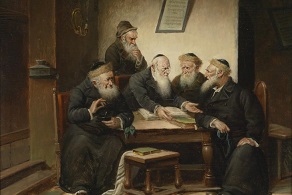This is mark Joseph “young” blog entry #500, on the subject of A Five Cent Review.
As I was posting the four hundred forty-ninth mark Joseph “young” web log post, I realized I was approaching half a thousand, and wondered whether I should do something to note that milestone. I decided that a quick look back picking out some of my favorite posts might be worth the effort. If you missed these, well, I won’t say that there weren’t other good posts nor even that these are all necessarily the best, only that they are the ones I remember fondly.
Unfortunately, on my first pass through those original four hundred forty-nine posts, I marked sixty-five as significant in one way or another, and realized that I would be publishing another fifty before I hit the milestone in question, so I was going to have to go back and read quite a few articles and pare down the list a bit. I did remove some of those originally included, but I added one or two as well. Hopefully I’ve succeeded in producing something of quality.
Of course, I have made a practice since this mark Joseph “young” web log began of posting an annual review of almost everything I published over the previous year, here or elsewhere. The most recent one was #490: Looking Back, and the previous ones are linked from there.
- I test, politically, as a moderate slightly left of center, but I hold a number of more conservative views; one of those is on abortion. I somewhere suggested that conservatives needed to find way to promote and explain their views to people on the fence, and this, #7: The Most Persecuted Minority, was a proposed television spot. It was eventually turned into a radio spot and aired on Lift-FM for a while.
- Also on the subject of abortion, #9: Abolition compares the pro-life movement to the abolition of slavery, in an unexpected way.
- #10: The Unimportance of Facts is my proposed explanation for why voters don’t care what the facts actually are, only whether the politician holds the same views as themselves.
- Written a few days after my father died, #51: In Memoriam on Groundhog Day memorializes him with my recollections.
- Having read that Justice Ruth Bader Ginsberg (now deceased) believed that abortion should be strictly a woman’s decision as an equal protection right (and not a privacy right to be decided by her and her doctor), I wrote #63: Equal Protection When Boy Meets Girl, suggesting that in regard to unexpected pregnancies most of the advantages are with the mothers.
- I’m glad I wrote #65: Being Married, because I have referred quite a few young couples to it in the years since. It is a collection of some of the best marital advice I ever received, and worth a read even if you’ve been married as long as I have.
- #72: Being an Author discusses how to identify such a person, that is, how to know whether you can call someone, including yourself, an author, or indeed a poet, artist, or musician.
- Having read that Neil DeGrasse Tyson stated it was highly likely that the universe was a similation, I suggested in #76: Intelligent Simulation that this was entirely inconsistent with his assertion that the theory of intelligent design was not scientific. The article quotes from my then-pending book Why I Believe.
- A satirical article becomes the springboard for a consideration of #79: Normal Promiscuity, which looks at the fact that what were once identified as illicit and abberant sexual liasons because they were dangerous are now embraced and encouraged as normative.
- I genuinely enjoyed writing #83: Help! I’m a Lesbian Trapped in a Man’s Body!, a satirical look at the notion that our gender is dependent on something we believe about ourselves.
- #84: Man-Made Religion challenges the notion that the diversity of religions demonstrates that they are all human inventions.
- A famous landmark ice cream shop in Milwaukee faced a protest and a boycott when the owner would not permit customers to order in Spanish, and in #87: Spanish Ice Cream I explain why expecting him to do so is unreasonable.
- #88: Sheep and Goats explains why the popular parable is so badly misunderstood and what it really means.
- I almost cut this one as I reread it, but it struck me that #90: Footnotes on Guidance, as a recounting of my own experiences, might be useful to those whom God is leading to places they did not expect to go.
- #93: What Is a Friend? describes two different understandings of what constitutes friendship, and how that matters.
- The notion of government taxing the rich to help the poor is put into perspective in #105: Forced Philanthropy, asking whether we want the government eagerly awaiting our deaths so it can spend our money.
- I wrote what I consider a very valuable nine-part series about ministry, how to recognize and identify it, and how music sometimes fits into it. The last of those, #107: Miscellaneous Music Ministries, is not the best of them nor the most useful, but it does briefly identify and link the other eight, and so is the easiest to include here. I would recommend the entire series, but usually find myself recommending specific entries in it which relate to particular ministries.
- Reacting to a discussion of my previously mentioned article on forced philanthropy, #108: The Value of Ostentation looks at how ostentation actually helps the poor, and why it is a bit illogical to object to it.
- I explain why so much current popular Christian music is comprised of simplistic songs, and why this is not so bad a thing as good musicians tend to think, in #109: Simple Songs.
- #114: Saint Teresa, Pedophile Priests, and Miracles responds to the argument that God cannot exist if He allows priests to abuse children.
- Inspired by a television show, #115: Disregarding Facts About Sexual Preference applies it to reality, noting that people who deny a connection between environmental factors and homosexuality are ignoring facts.
- #120: Giving Offense is primarily about tolerance, that it does not mean declining to state opinions but only willingness to respect those with whom we disagree.
- #126: Equity and Religion addresses the argument that governments should not provide funding for pre-school education run by religious organizations.
- #130: Economics and Racism explains why racism, by and against everyone, rises when economic conditions fall.
- #132: Writing Horror gives a few tips on writing horror stories and running horror in games which must be worth reading, because Places to Go, People to Be republished it in French as Maîtriser l’Horreur.
- A misunderstanding of what it is to be “racist” inspired the composition of #135: What Racism Is, clarifying that blacks and other non-whites can be and frequently are racist against whites, and that assuming that because someone is white she is racist is a racist assumption.
- I wrote a four-part miniseries on the sin and judgment in the first chapter of Romans. The fourth part, #141: The Solution to the Romans I Problem, links and summarizes the first three, and gives the solution, that we Christians need to repent of our hidden idolatry.
- Responding to a foolish statement from PETA, #162: Furry Thinking discusses the proper relationship between humans and animals.
- In the 70s and 80s I asked a lot of major contemporary Christian musicians their advice for anyone wanting to do what they do, and in #163: So You Want to Be a Christian Musician I consider the best of that advice, and what we should really want.
- I refer people to #168: Praying For You frequently–whenever someone asks me to pray for them–as it explains what I think is a correct understanding of the obligations created by such prayer requests.
- I was hesitant to write #193: Yelling: An Introspection, which discusses the futility of yelling and the negative counter-productive impact it has, but several readers thanked me for it.
- I would be remiss were I not to mention at least one article about temporal anomalies, and my list includes #199: Time Travel Movies That Work, a few films in which the outcome is not disastrous.
- #200: Confederates actually argues that the American Civil War was about modern issues like state drug policy and immigration rules.
- #207: The Gender Identity Trap suggests that the idea that someone can be a different gender inside than their physical sex is entirely about prejudices and stereotypes, with nothing to support it in reality.
- #208: Halloween is one of two articles I wrote about the holiday (the other Faith in Play #11: Halloween) examining Christian attitudes toward it.
- Following up on #207: The Gender Identity Trap, #212: Gender Subjectivity observes that no one can know that he feels like the wrong gender inside, because that isn’t more than that he doesn’t feel the way he thinks society expects him to feel, and in this case society is simply wrong.
- #215: What Forty-One Years of Marriage Really Means is an addendum to the previous #65: Being Married, providing an important understanding of what it means that marriage is a covenant, not a contract.
- #216: Why Are You Here? answers the existential question, that is, why do we exist.
- #230: No Womb No Say challenges the notion that men, not having uteruses, should not be able to express an opinion about abortion, by raising a different issue in which men lack the requisite anatomy but still are expected to express an opinion.
- #239: A Departing Member of the Christian Gamers Guild answers suggestions that involvement in fantasy role playing games is detrimental for Christian faith.
- #245: Unspoken Prayer Requests explains why I think they are theologically invalid.
- In June of 2019, after attending The Objective Session of The Extreme Tour, I began publishing my songs on this web log. I ranked about forty of them based on music, lyrics, and the quality of the performance and recording I had available, and began with the one I thought (with a bit of input from one of my sons) best, #301: The Song “Holocaust”. It includes a link to a recording of the song. Additional songs are chained beginning with the second, at the bottom of the article.
- #309: Racially Discriminatory Ticketing highlights and explains a blatant example of racial discrimination by blacks against whites.
- In March of 2018 I began a miniseries about early contemporary Christian and Christian rock musicians, still ongoing, with Larry Norman. Two years later the thirty-ninth entry in that series focused on one of the best bands of the eighties, #342: Fireworks Times Five, with extensive links to videos from all four of their excellent albums. It also links the previous thirty-eight such articles.
- In 2020, after COVID-19 caused the cancellation of the live Origins game festival, Black Lives Matter protestors demanded that the corporation running the gaming convention make a public statement in support of their position or face a boycott, which shut down efforts to launch an online convention. #344: Is It O.K. Not to Make a Statement? attacks this divisive and destructive policy as a blow against the constitutional right not to speak about something.
- A frustrated musician asked the question on a Christian music Facebook group, and I offered an answer in #352: Why No One Cares About Your Songs, which I think might be a must-read for those who aspire to any creative endeavor.
- In the discussion of the polarization of America, I suggest in #375: Fixing the Focus that many Christians have our eyes on the wrong things.
- The old economic principle derived from sheep grazing on common land finds a new and problematic application in the world of online retailing, elucidated in #377: A New Tragedy of the Common.
- Normally I link reviews, but this one was sent to me privately, and was the first review I saw of my book Why I Believe, so I feel I would be remiss if I failed to mention my reprinting of it in #386: An Unsolicited Private Review.
- A popular song, a friend’s pregnancy, and the recollection of a spoiled surprise party prompted me to write #394: Unplanned, suggesting that there aren’t really any accidents, and, again, talking about abortion.
- The question was asked, specifically in relation to worship, and I offered an answer in that context which extends beyond it, explaining #396: Why Music Matters.
- #406: Internet Racism gives reasons for rejecting the call (in Great Britain) that those who post racial slurs against the poor performance of black athletes should be brought up on criminal charges.
- I was personally asked to respond to a long article giving ten reasons why the Biblical account of the exodus was untrue, so I wrote an eleven-part miniseries. It concluded with #425: Do Similarities Between the Accounts of Moses’ Birth and Certain Myths Make Him a Fictional Character?, which also links and briefly summarizes the ten previous articles.
- One of my patrons asked me for #426: A Christian View of Horror, which suggests that to some degree it can be embraced, but ultimately there is one insurmountable problem.
- #429: Luther College of the Bible and Liberal Arts speaks of the legacy of a small school whose campus has been almost completely obliterated by time.
- A couple decades back, the respected Australian role playing e-zine Places to Go, People to Be launched a French edition, and asked my permission to translate articles I had written for them to release in another language, and subsequently to do so with articles I had published through other sites. Late in 2021 I finally got around to compiling a linked list of what was was then twenty-six translated articles, in #431: Mark Joseph Young En Français.
- #434: Foolish Wisemen draws a lesson about celebrating Christmas versus the rest of the story from the account of these visitors.
- #444: Ability versus Popularity discusses contests in which the public is asked to vote for the best, and contestants encourage friends who know nothing of the competitors to vote for a friend.
- I had recently seen the argument that laws restricting abortion were an impingement on the religious practice of Jewish women, and since I had heard the same argument decades before in Senate hearings I wrote #446: The Religious Freedom Abortion Argument, and decided to include it here.
- #449: Cruel and Unusual is not exactly about the death penalty and expresses no opinion on it, but does find fault with the protest that opposes it by attempting to make it more painful.
- #459: Publication Anticipation provided a list of my books recently published in 2021-2 plus my expectations for 2023 and beyond. Those mentioned there which have been published since are listed in the 2023 review article mentioned at the top of this page.
- I’m listing #469: Church History because it was an answer to the last question I was asked by my long-time friend John Mastick which I answered in a web log post before he died. His question was about what distinguished Calvinists, Pentecostals, and Charismatics from each other, and I threw in Catholics, Lutherans, and Evangelicals for clarity. He had previously prompted #413: The Abomination of Desolation and #465: Believing in Ghosts.
- The issue arose in our study of the Gospel According to Mark in the Christian Gamers Guild’s Chaplain’s Bible Study, leading to an expanded exploration of it in #475: The Mother of Jairus’ Daughter, which I contend is the woman cured of bleeding in the healing nested in the middle of that miracle account.









